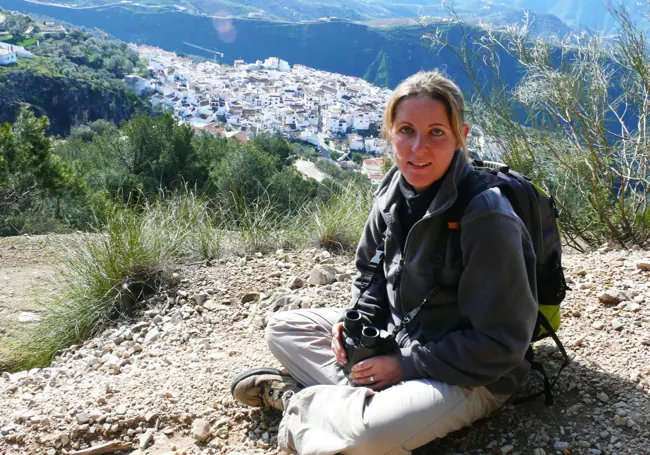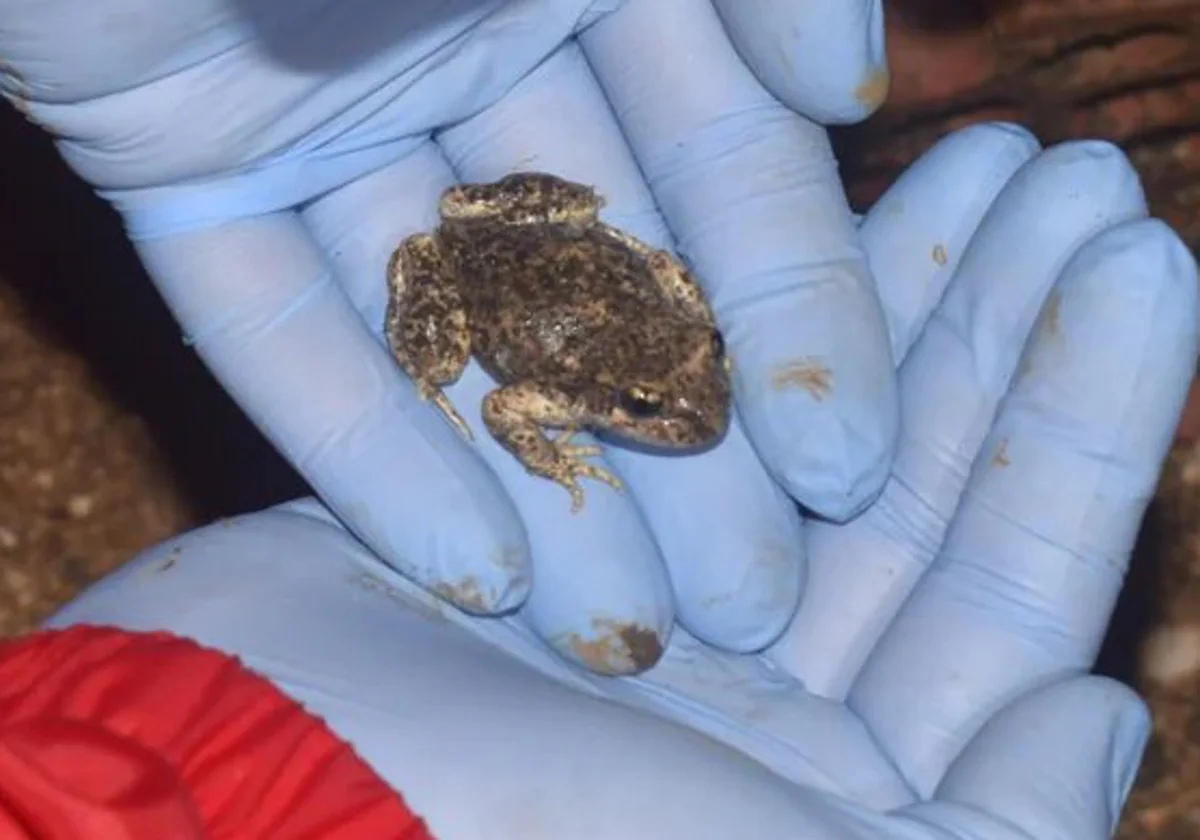Almost three decades marked since the discovery of Iberian midwife toad, an amphibian species unique to the Axarquia in Malaga province
Canillas de Aceituno, the town where it was first discovered, is celebrating the occasion with the release of new information that will be critical to the survival of this endangered animal
The Axarquía can boast a species of toad that is unique to the area in Malaga province. Specifically, it is the Iberian midwife toad, which is from the Sierras Tejeda, Almijara and Alhama Natural Park.
This small amphibian, extremely endangered, is different from the one found in the rest of Spain. It was discovered on 16 May 1995, 29 years ago last Thursday. It was then that the first scientific work on the species was published, with Canillas de Aceituno responsible for the research. It was in this municipality in the Axarquia region the data was taken to determine this important discovery.
On the occasion of the 29th anniversary of the discovery of Alytes Dickhilleni by the authors Arzten and García-París, the environmental educator and resident of Canillas de Aceituno Lidia Jiménez, in collaboration with a group of scientists from the Museo de Ciencias Naturales de Madrid, the University of Oviedo and published by the Spanish Herpetological Association (AHE), released their new work as an ebook. It is called Emerging Diseases in Amphibians, and focuses on the diseases that are currently causing significant population declines worldwide.
Canillas de Aceituno mayor Vicente Campos said: "from this local authority we echo the problem of emerging diseases that are impacting on amphibians worldwide and that particularly affects our herpetofauna, especially the species Alytes". "In this work presented by our local resident Lidia Jiménez, we can find out what they are, how they affect these animals and how we can prevent them," he said. Campos also said that next year, Canillas de Aceituno will host the meeting of scientists to celebrate the 30th anniversary of the discovery of the Betic midwife toad.
Lidia Jiménez said: "these are fungi and viruses that do not affect humans, but we can be a vector of contamination if we do not know about them and act accordingly". "The aim of this work is to raise awareness of what they are, how they affect this animal group and what can be done to try to prevent humans from transmitting them," she added.
The researcher from Canillas de Aceituno has given some guidelines to follow in order to protect the amphibian species in the area: "Keep the water bodies where there is aquatic life intact and do not intervene in them. Do not allow your pet to get into the water of fountains, troughs and ponds, as its paws can transmit fungi and pathogens to other places".

The expert also advised owners to not to leave their pets in the area, as they can seriously harm the native fauna. "When hiking, do not empty your water bottles into the fountains, and if you want to renew the water, throw it away from the wetlands. The most important thing: know our natural enclave, conserve it, maintain it and, if possible, improve it," she said. For more information people can visit sosanfibios.org/ebook-enfermedades-emergentes/.

